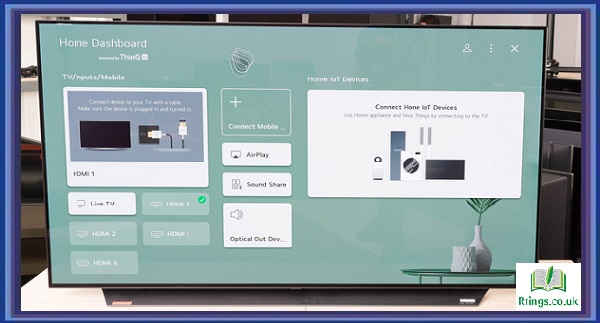In recent years, soundbars have gained immense popularity as a compact and convenient audio solution for enhancing the audio experience of TVs and home entertainment systems. These sleek devices are designed to deliver improved sound quality without the complexity of a full surround sound setup. One common question among consumers is whether a receiver is necessary when using a soundbar. In this article, we will delve into the role of receivers in soundbar systems, exploring their necessity, benefits, and potential alternatives.
Understanding Soundbars
Before we address the need for a receiver in a soundbar system, it’s crucial to understand what a soundbar is and how it functions. A soundbar is a compact speaker system typically consisting of multiple built-in speakers, including woofers and tweeters. Its design aims to offer a better audio experience than the built-in speakers of a TV without the complexity of a traditional surround sound setup.
Soundbars can vary significantly in terms of features, sound quality, and connectivity options. They can offer various audio technologies, such as Dolby Atmos and DTS:X, to create a more immersive sound experience. However, the need for a receiver in a soundbar setup is influenced by factors like the soundbar’s capabilities, the desired audio quality, and the intended usage.
Necessity of Receivers in Soundbar Systems
Sound Processing and Decoding: One of the primary functions of a receiver in a traditional home theater setup is to process audio signals and decode them into various audio formats. While soundbars are designed to simplify audio setups, some advanced models do incorporate receivers’ functionalities. These soundbars can decode complex audio formats and provide a virtual surround sound experience, eliminating the need for a separate receiver.
Audio Sources and Connectivity
The necessity of a receiver in a soundbar setup also depends on the audio sources you intend to use. A receiver can serve as a central hub for managing these connections if you connect multiple devices like gaming consoles, Blu-ray players, and streaming devices. Some high-end soundbars offer multiple HDMI inputs and outputs, allowing you to connect various devices directly to the soundbar without needing an external receiver.
Audio Quality and Customization
Soundbars often prioritize convenience and aesthetics, but some users seek higher audio quality and customization options. A dedicated receiver can provide more advanced audio processing capabilities, room calibration features, and the ability to fine-tune audio settings to match your preferences. However, some premium soundbars come equipped with advanced equalization settings and room correction features, reducing the necessity for an external receiver.
Benefits of Incorporating a Receiver
Enhanced Audio Processing
Receivers are designed to process and to improve audio signals, offering features like multi-channel audio, surround sound decoding, and audio upscaling. By incorporating a receiver into your soundbar setup, you can achieve a more immersive and dynamic audio experience, especially when watching movies or playing games that support these formats.
Expandability
A receiver can be a central hub for all your audio and video sources. If you plan to expand your home entertainment setup, a receiver can accommodate additional speakers, subwoofers, and audio devices. This expandability is particularly beneficial if you want to transition from a soundbar-only setup to a more comprehensive home theater system.
Future-Proofing
As audio technology evolves, a receiver can offer better compatibility with emerging audio formats and standards. This is especially relevant for those committed to staying at the forefront of audio advancements and wanting their setup to remain suitable for years.
Alternatives to External Receivers
While external receivers can undoubtedly enhance the audio experience in a soundbar setup, there are alternative solutions to consider:
Built-in Audio Processing
Premium soundbars often include advanced audio processing capabilities that emulate the effect of a receiver. These soundbars can decode complex audio formats, simulate surround sound, and offer customizable sound profiles, reducing the need for an external receiver.
All-in-One Home Theater Systems
If you seek a more comprehensive audio solution, consider all-in-one home theater systems. These systems combine a soundbar or a sound base with a subwoofer and additional speakers, offering a more immersive experience without needing a separate receiver.
Conclusion
The necessity of a receiver in a soundbar setup depends on various factors, including the soundbar’s capabilities, your audio preferences, and the devices you plan to connect. While a receiver can enhance audio processing, expandability, and future-proof your setup, many modern soundbars offer advanced audio processing functionalities that can emulate the effects of a receiver. Ultimately, the decision to incorporate a receiver in your soundbar system should be based on your desired audio experience, room setup, and plans for future expansion.
Frequently Asked Questions (FAQs)
Is a receiver necessary when using a soundbar?
The necessity of a receiver in a soundbar setup depends on your specific audio needs and the capabilities of your soundbar. Basic soundbars are designed for simplicity and can enhance your TV’s audio without a receiver. However, if you desire advanced features like decoding complex audio formats (e.g., Dolby Atmos), connecting multiple devices, or achieving higher audio customization, a receiver might be beneficial.
Can a soundbar replace a receiver completely?
Some high-end soundbars come close to replacing a receiver by offering advanced audio processing and multiple connectivity options. Still, a dedicated receiver can provide additional benefits if you’re aiming for an entire home theater experience with expandability and future-proofing.
Are there soundbars with built-in receivers?
Some soundbars incorporate receiver-like functions, such as decoding various audio formats. Premium soundbars often offer these advanced features, blurring the line between soundbars and receivers.






